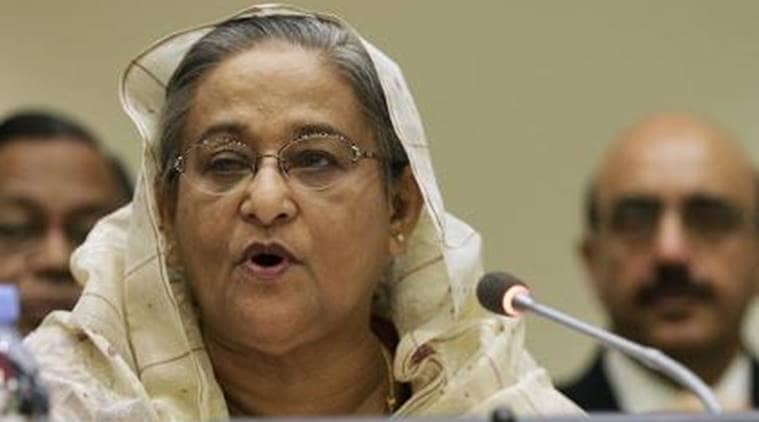Opinion An attack on vibrant Bangladesh
Awami League government’s efforts to counter terrorism are appreciated even by its critics.

 The current Prime Minister, Sheikh Hasina, has been working hard to maintain peace in South Asia. (Source: File)
The current Prime Minister, Sheikh Hasina, has been working hard to maintain peace in South Asia. (Source: File)
After much scrutiny it can be confirmed that a majority of the assailants, who participated in the July 1 attack on Dhaka, were from well-to-do and educated families. They were in the age group of 20-22 and used weapons like machetes to kill the hostages. The people of Bangladesh have been acquainted with such vicious methods since Bangladesh’s Liberation War of 1971. The question worth considering, however, is why the nation is being attacked in such a manner.
Bangladesh has a secular government, which believes in equality, justice and progressive values. Since 1913, the Awami League government has extended its endeavours to holding trials for war criminals of the 1971 war. The current Prime Minister, Sheikh Hasina, has been working hard to maintain peace in South Asia. On several occasions, she has insisted on zero tolerance for militancy and terrorism and emphasised that she will strive to build a nation on the lines of secularism, equality and progressive values — much like her father, Bangabandhu Sheikh Mujibur Rahman.
In the past seven years, numerous development projects have been undertaken. Work on infrastructure projects like metro rail, four-lane highways, LNG stations, nuclear and coal-powered electricity, deep sea port, modern airports and a bridge over the unpredictable Padma river is going on at a rapid pace. Once completed, these projects will benefit the nation immensely. It is worth noting that the slain Japanese victims were working for JAIKA, which is funding the metro rail project. The European victims were investors in the apparel sector — the second largest in the country in terms of exports.
The government responded to the July 1 attack with a commando operation in which five militants were killed and one militant captured. It has recently made biometric SIM registration compulsory; this enabled the government to identify the assailants quickly. The assailants had planned to run away as soon as they executed their mission. They may have planned for more attacks on July 1. The main focus of the law enforcing agencies was to rescue as many hostages as possible. However, these agencies had to be very discreet because they lacked clarity on the weapons used by the assailants. Unfortunately, the attackers executed their plan before the law enforcers arrived on the scene. The para-commandos took 13 minutes to control the hostage situation.
Bangladesh’s intelligence and security forces have been working to check such activists. Last month, they unearthed a large cache of weapons in Dhaka. The country’s intelligence uncovered the identities of militants who hatched plans of carrying out an assault from Singapore. Every now and then, such missions are being thwarted by security agencies. July 1 was the first time Bangladesh faced a hostage situation. It faced this new reality valiantly. However, it would have helped if a team of experts was at hand to face such a hostage crisis — especially in view of the global situation. The Awami League government’s efforts to counter terrorism are being appreciated by its critics as well.
It is important to focus on how adolescents use the internet and social networks to develop and maintain connections. Some schools, colleges and residential educational institutions could create mindsets that lead youngsters astray. All measures should be taken to tackle such developments. Tackling this problem requires financial and technical assistance, and expert involvement. So any help from the international community will be most welcome.
PM Sheikh Hasina has emphasised that parents and the guardians should be more vigilant. The Dhaka assailants had run away from their homes more than six months ago. The common people must be alert to such activities. The need of the hour is to find the masterminds behind the attacks; the ones who directed them and provided them weapons. Security in restaurants has been tightened after the recent attack. The focus will be on places frequented by foreigners. We need a lasting solution to the problem.
Foreigners are the main target of these kind of such terrorists because they want to ruin Bangladesh’s reputation, discourage investors and impede development. The attacks were carried out in the name of Islam. The religion, however, does not support such activities. Prophet Mohammad (SM) always respected his guests. There are a number of tales of his amicable treatment of non-Muslim guests. The victims of the attacks were guests of this country. These militants have disrespected a peaceful religion. They want publicity and spread fear. The international community should discourage their heinous motives. It should discourage publicity of such attacks. Militants want to spread further terror. Their plans should be nipped at the outset. We have to fight them ideologically and ensure that they do not influence our socio-economical development.





